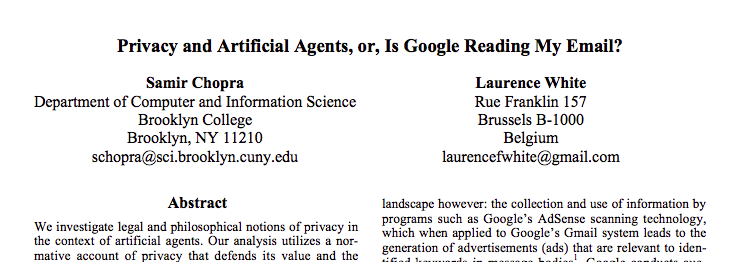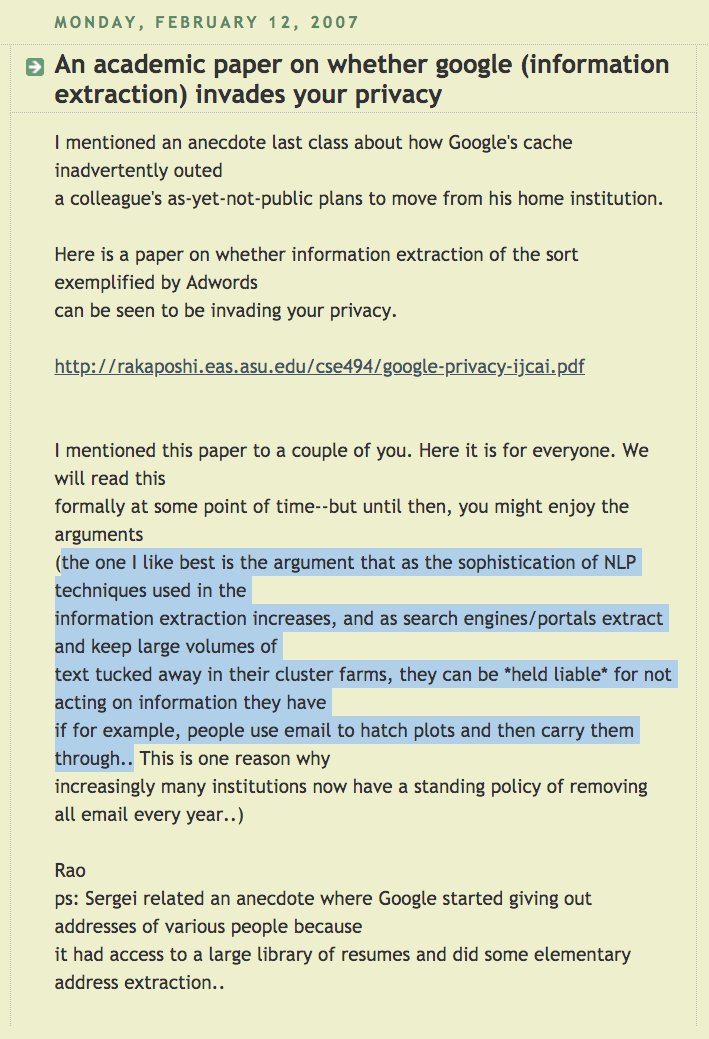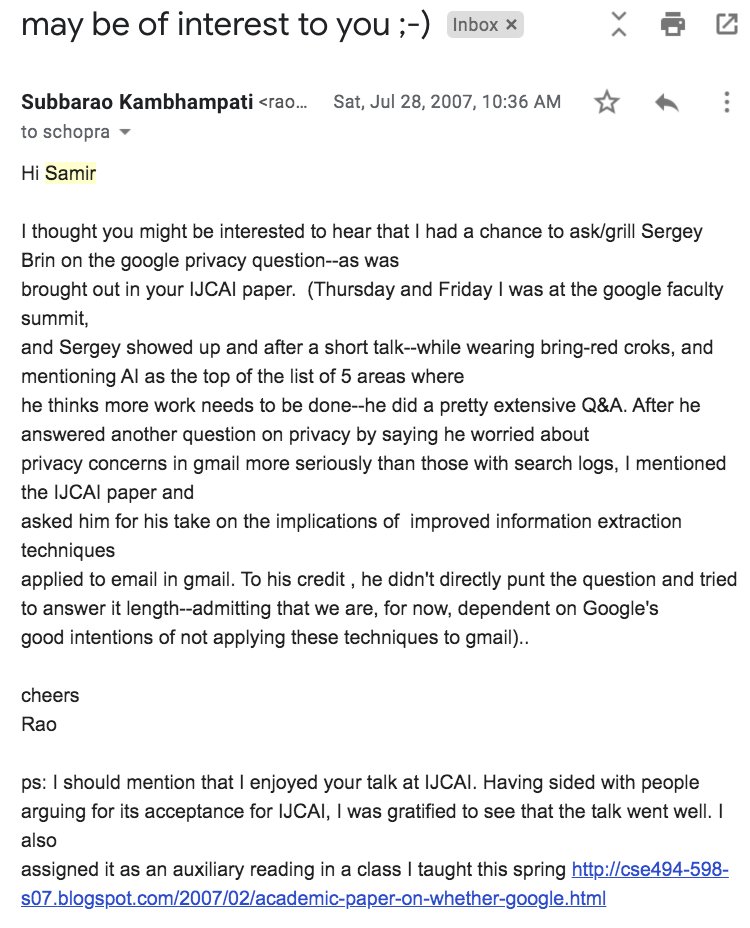[ #AI & Privacy--a blast from the past--mini-thread]
All this discussion about Parler etc being held accountable for views propounded on them reminded me and my friend @PJNarayanan of an interesting #IJCAI2007 paper..
All this discussion about Parler etc being held accountable for views propounded on them reminded me and my friend @PJNarayanan of an interesting #IJCAI2007 paper..
In the summer of 2006, PJN and I were among the 23(*) SPC members who met in Boston to make final #IJCAI2007 acceptance decisions (with Manuela Veloso playing our fearless leader er.. PC Chair).
(*) Yes, just 23 SPC, and no ACs! For comparison, #IJCAI2020 has over 90 *ACs*..
(*) Yes, just 23 SPC, and no ACs! For comparison, #IJCAI2020 has over 90 *ACs*..
Towards the end of the PC meeting, one paper lead us into an animated discussion.
This was a paper on #AI and privacy, with mixed initial reviews (as the reviewers didn't quite see it as a pressing issue then).
The SPC member brought it up for full committee discussion.
This was a paper on #AI and privacy, with mixed initial reviews (as the reviewers didn't quite see it as a pressing issue then).
The SPC member brought it up for full committee discussion.
This paper asked some provocative questions about privacy in the age of #AI--including whether, as its NLP capabilities evolve, Google can be held accountable for @gmail *not reading mails*--and detecting subversive activities happening on its platform.
Remember this was still 2007 and the @gmail's primitive IE capabilities were good enough to push some tangentially relevant ads to annoy us, but not anywhere near enough to do #GPT3-level comprehension!
Very few people worried or took #AI privacy issues seriously yet..
Very few people worried or took #AI privacy issues seriously yet..
After a long spirited discussion--perhaps the first I recall in #AI PCs about privacy issues--the SPC voted to accept the paper.
At the main conference in Hyderabad, I remember a lot of us SPC members trooping in to hear the presentation by Samir Chopra. https://www.ijcai.org/Proceedings/07/Papers/201.pdf
At the main conference in Hyderabad, I remember a lot of us SPC members trooping in to hear the presentation by Samir Chopra. https://www.ijcai.org/Proceedings/07/Papers/201.pdf
I recall being quite intrigued by the arguments in that paper at that time, enough to bring it up in my UG class on Info Retrieval/Mining/Integration: http://cse494-598-s07.blogspot.com/2007/02/academic-paper-on-whether-google.html
At the 2007 @Google Faculty Summit, Sergey Brin sauntered in (wearing his red crocs!), said #AI is top-5 for them, and did an extensive Q&A. I asked him about the implications of this paper. He didn't punt, and admitted that for now we are dependent on Google's good intentions..
Looking back at it from the current #AI angst, it is hard to believe that there was a time when discussions about privacy and #AI were barely there! The issues that paper brings up are even more relevant now when much less shallower NLP at scale is very much an everyday reality..
Thirteen years hence, this much is clear: whatever conflicting demands we continue to place on Social Media--that they respect our privacy by not surveilling us, and yet closely monitor and purge views/content that we abhor-- #AI technology is destined to power the backend..

 Read on Twitter
Read on Twitter




